Nigerians, especially those among us who are eligible to cast a vote in today’s election, have an urgent call to make. It falls on them to decide the direction of their floundering country. To them belongs the task of determining the shape of Nigeria over, at least, the next four years.
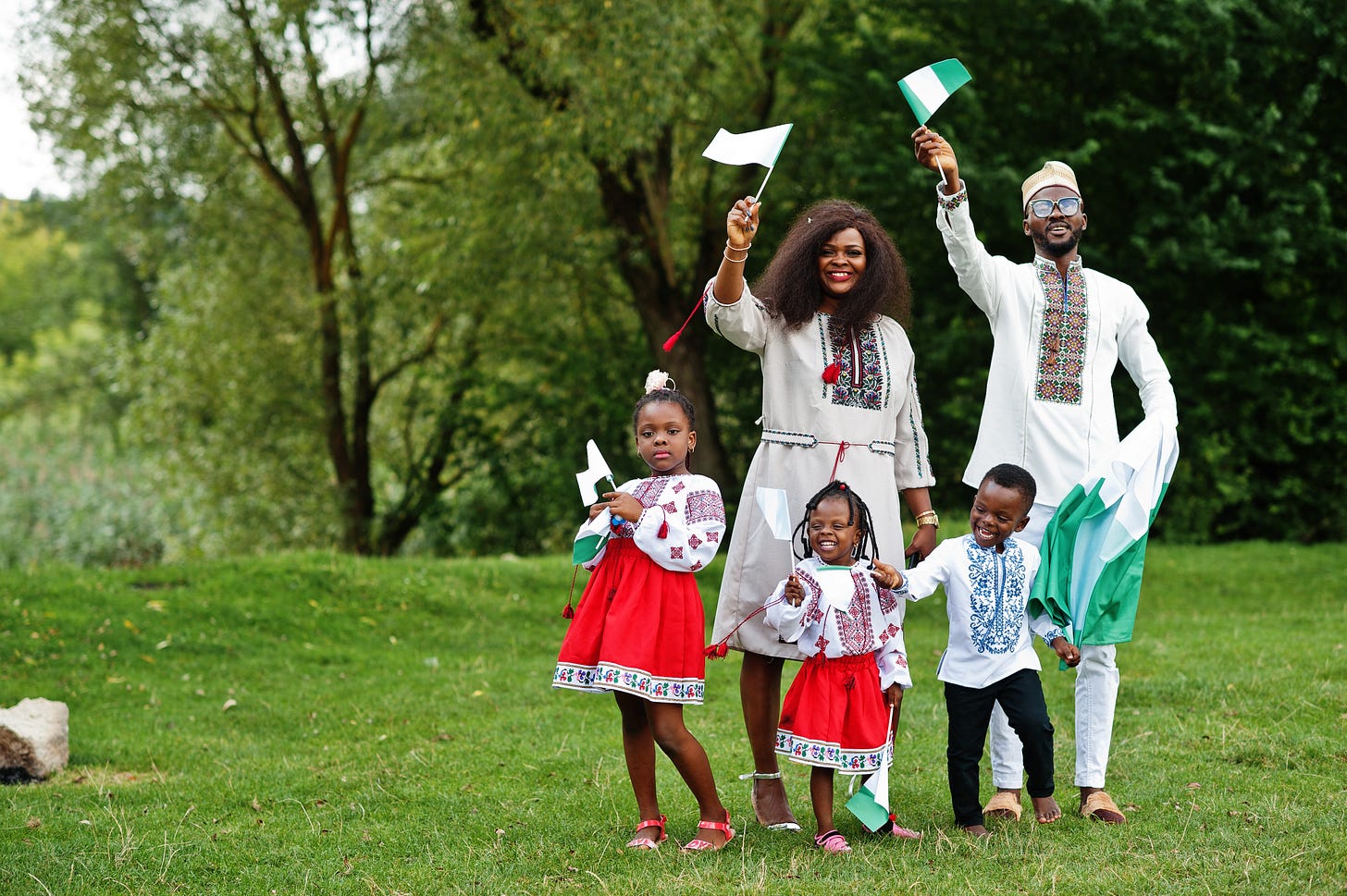
The Latin-minded would capture that burden in the phrase, “Nigeria, quo vadis?” Borrowing the people’s street lingo, I’d translate it as, “Which way, Naija?”
This has been one of the most difficult elections to predict or handicap. Depending on who you ask, you’re likely to hear any one of the three main contenders–Atiku Abubakar of the Peoples Democratic Party, Peter Obi of the Labour Party, or Bola Ahmed Tinubu of the All Progressives Congress–named as the odds-on favorite.

I’m in no mood to play prognosticator. In a matter of hours, or days at the most, the outcome of today’s presidential polls will become known.
For me, there are two broad questions that will be answered today.
The first has to do with the conduct of the elections. Quite a few entities come under scrutiny here. For starters, local and international observers will have their eyes trained on the Muhammadu Buhari administration. Will the outgoing government live up to its avowal to maintain a level playing field for all contestants?
There’s both hope and room for concern in this regard. President Buhari has run a disastrous shop for almost eight years, but he’s had a better record than some of his predecessors in a key area: meddling in elections. That inspires the hope. But Buhari’s laissez faire mode of governance often enables some of his lieutenants to act, sometimes surreptitiously, other times brazenly, in breach of presidential directives or policies. It’s not beyond some members of the president’s posse to take illicit steps calculated to lend undue advantage to one of the parties.
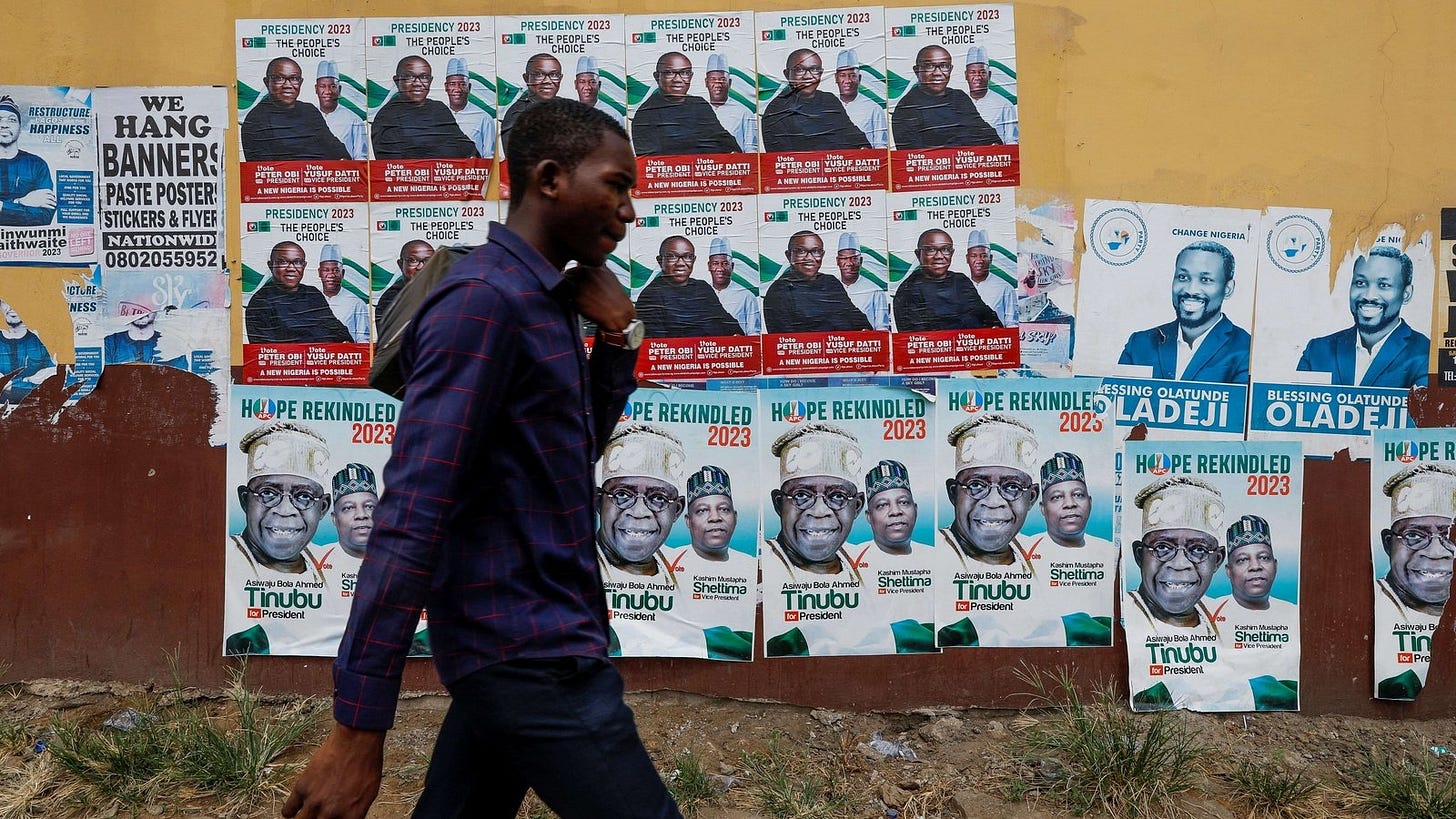
The police, DSS operatives, and agents of other law enforcement apparatuses are on trial today. Are they going to act honorably, or merely help to propel one of the parties to power?
Soldiers are also very much in the spotlight. This is not the first time they have been deployed in a Nigerian election. But I don’t remember a time when—like this year—there was countrywide deployment of the armed forces. In a sense, it’s odd that heavily armed soldiers will take up a civic duty that’s the traditional domain of the police. Still, the climate of insecurity in Nigeria is so grim as to warrant the mobilization of military resources.
The critical question is whether the soldiers will content themselves with serving a narrowly defined objective: helping to stabilize the civic space so that voters feel safe to go out and vote today.

There’s always the risk of some soldiers turning rogue. They may hire themselves out as agents of intimidation to one party or another. If that happens, then the military would earn a veritable bad eye, adding one more moment of shame to a roster of past outrages.
Did military commanders train their soldiers on professional deportment? Were the soldiers warned that displays of excessive militarism is bound to chill voter enthusiasm and delegitimize the electoral outcome?
Finally, there’s the Independent National Electoral Commission. INEC cannot afford a subpar performance. As electoral umpires, they’re called to be impartial and fair—and be seen to be so. In the past, quite a few of their officials had a reputation for corruptibility. Today’s election better be stellar if the body hopes to be taken seriously going forward. Their much-hyped voting technology ought to be as operationally efficient as its officials must appear beyond reproach.
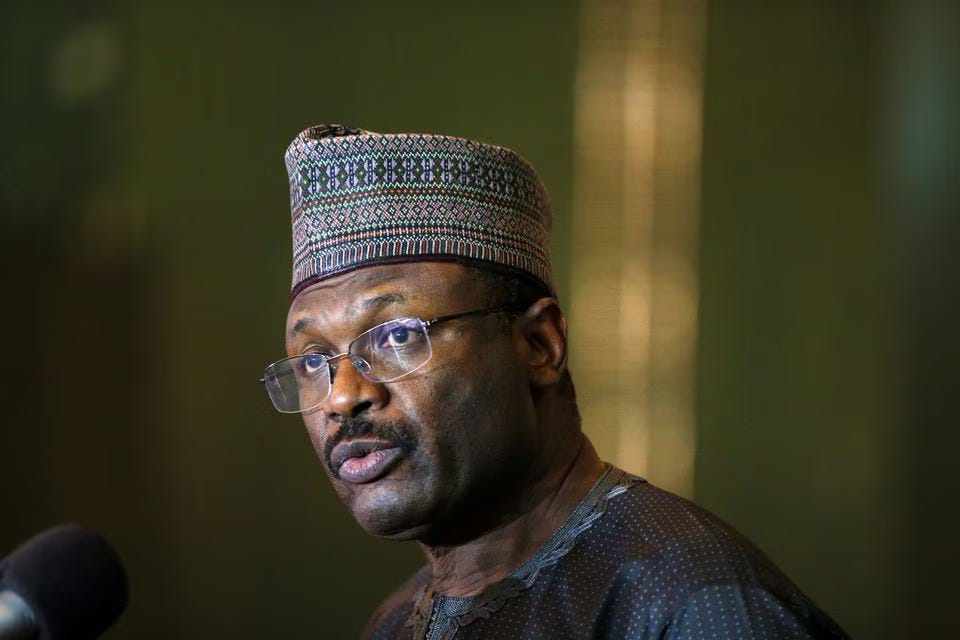
If the conduct of the election passes muster, then the outcome—whatever it is—will speak volumes about the mettle and mindset of Nigerians. I’d suggest that a vote for Tinubu—a man whose physical diminishment is matched by acute mental lapses—would loudly proclaim that Nigerians possess a voracious, indeed insatiable, appetite for suffering.
Barring a miraculous turnaround in his physical state, Tinubu is likely to spend a significant portion of his presidency shuffling in and out of hospitals abroad. He’ll have little time to attend to the woes of a country that is itself desperately sick.
Atiku Abubakar’s election will amount to national nostalgia for the mediocrity that marked the PDP’s 16-year from 1999. Atiku gave his “best” when, as VP, he essentially oversaw implementation of the economic agenda of President Olusegun Obasanjo’s first term. His best was far from inspiring.
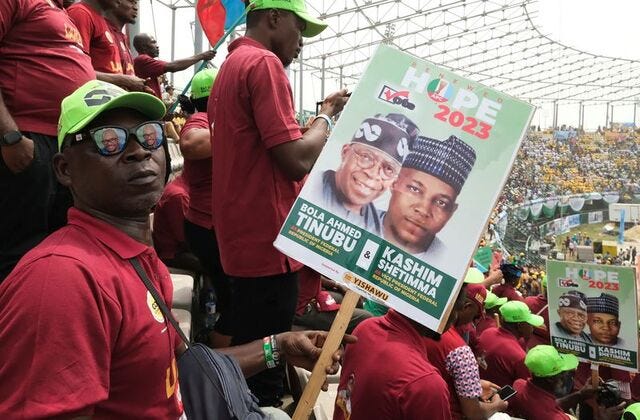
Obi’s emergence as the president-elect is, I suggest, the outcome that’s most apt to give Nigerians a giddy sense of hope. He’s been adopted by the youth, and his victory would unleash the creativity and energy that young Nigerians can, and must, bring to reinvigorate their comatose country.
Obi also happens to be the only main contender whose election will excite diasporic Nigerians—indispensable assets for any attempt to re-infuse Nigeria with vitality.
Which way, Naija?






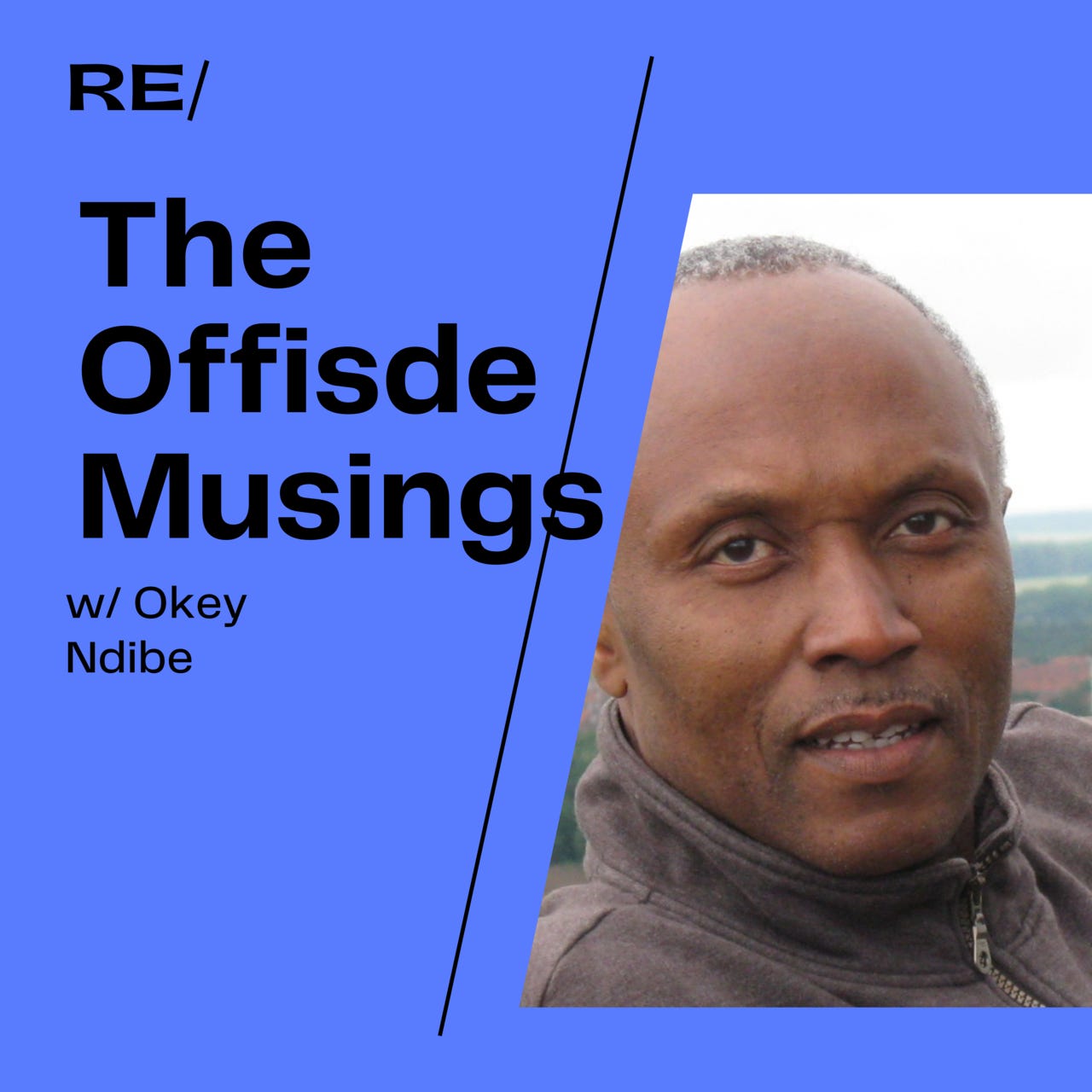
"I’d suggest that a vote for Tinubu—a man whose physical diminishment is matched by acute mental lapses—would loudly proclaim that Nigerians possess a voracious, indeed insatiable, appetite for suffering."
This here is gold, prof.
I love this piece of comment so much, I've posted the link to your article on Facebook, WhatsApp using your comment above as an excerpt.
Nigerians have been so alienated by the people who claim to represent them in government. They talk about political parties like they're talk about their favorite football clubs. They talk about politicians the way they talk about their favorite movie actors or soccer players. They talk about the actions of this people as if they're spectators at a soccer match.
Tribalism trumps everything else in Nigeria. You can't have any meaningful conversation with a tribalist. It doesn't matter the soundness of your points or argument, a tribalist won't let facts get in his way of his choice to vote an incompetent candidate from his region. The tribalists who are going to participate in the elections today, do not see it as going to vote for a qualified, competent candidate. On the contrary they see it as some sort of rivalry between the tribes. Whose tribe will get to one-up the others and rule for 8 years?
Nigerians have become so used to the mediocrity by people in office, and brutality by agents of the state, their expectations from them have become low to non-existent.
The notion that there's civil rule in Nigeria is debatable, and democracy even more so. Out of 24 years of civilian rule in Nigeria, 16 has been led by former generals. After 24 years of so called democracy, Nigerians are still afraid of people in uniforms, especially the army. Even worse, hear stories of their personal encounter with soldiers that didn't go well, they make it sound like it's the right of the army to brutalize them.